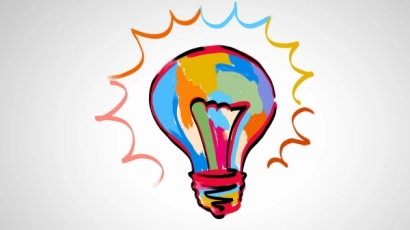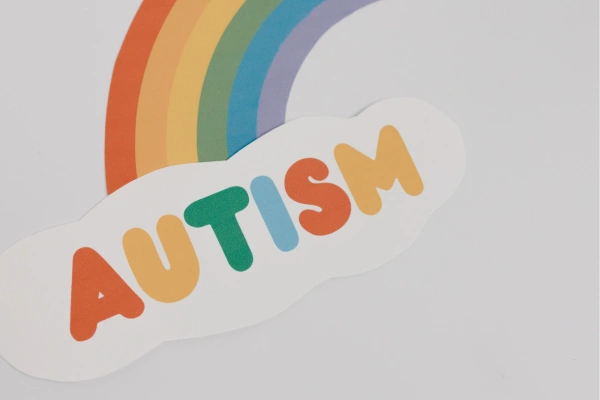Psst! Have you read our last article about these Important Signs Of Dyslexia That You Need To Look Out For? Yes? Well, that’s great! Today, we’re going to delve into the strengths of people with dyslexia. As we mentioned, dyslexia is a learning disorder that makes it harder for people to read. However, this same fact actually gives people with dyslexia a much valued creative edge that actually works to their advantage.
Want to find out how? Well, read on!
Non-linear thinking

The dyslexic brain has been referred to as ‘non-linear.’ A non-linear thought process, as the name implies, means that the thinker does not think in a sequenced manner. Rather, they arrive at solutions by drawing connections between unrelated concepts.
This means that a very advantageous strength of people with dyslexia is the ability to problem-solve creatively. They are able to come up with unique ideas to challenges precisely because of this non-linear thinking.
Non-linear thinking is a skill that enables people in businesses, academia and even governmental roles to thrive. This type of thinking is valuable because it enables people to push the boundaries of what was previously thought possible.
For example, non-linear thinking is useful when a team is brainstorming about ideas for a business meeting. Non-linear thinkers are able to offer novel marketing strategies that can better capture a customer’s attention. And to learn more about how non-linear thinking applies to daily life, Mindmanager has an excellent article.
Ability to see the big picture
Another valuable strength of people with dyslexia is their ability to see the big picture. This stems from their natural talent of thinking non-linearly. As a result, they are able to consolidate the minute details of a project and bring it together in a way that makes sense.
People with dyslexia are able to use this strength to pick up on information that others might have missed. They are then able to process this information to spot patterns and trends in data.
Of course, this ability to see the big picture is enormously useful in both their professional and personal lives. It empowers people with dyslexia to be able to make the best-informed decisions for the best possible outcomes. All of this stems from their natural inclination towards non-linear thinking and their skill of being able to ‘zoom out’ to focus on what’s really important.
Creativity

Keeping the above two strengths of people with dyslexia in mind, it shouldn’t come as a surprise that people with dyslexia are often naturally more creative than those without dyslexia.
Did you know that the famous children’s author, Roald Dahl, was thought to be dyslexic? Yet, he’s remembered as one of the greatest storytellers of our time. His iconic books such as The Big Friendly Giant and The Witches have been adapted to movies, plays and musicals.
It’s true that people with dyslexia may have more difficulty with reading and writing. However, this certainly does not mean that they are any less intelligent or capable than someone without dyslexia. In fact, their non-linear thinking style and ability to see the big picture may work together to empower them with the strength of being more creative than a person without dyslexia!
Empathy
Another strength of people with dyslexia is their empathy. Because of their own challenges with reading and writing, people with dyslexia tend to be more understanding of others’ struggles. People with dyslexia are able to see themselves in other people and use their own hardships to better empathise with others.
Beyond just the primary symptoms of dyslexia – difficulty with reading and writing – the secondary symptoms of dyslexia also contribute to this increased empathy. These secondary symptoms are psychological symptoms, such as anger and frustration at their own abilities and skill sets. This article from the Davis Dyslexia Association International breaks it down for us quite nicely.
Thus, people with dyslexia are better able to ‘read the room’ and be more emotionally sensitive towards others. People with dyslexia have a higher level of emotional intelligence that enables them to navigate through difficult conversations or tense situations. This is an especially valuable skill in today’s society.

Good long-term memory
According to this article by Neurodivergent Insights, many people with dyslexia have good long-term memory. This is particularly true for long-term memories that involve experiences and/or visuals, rather than written records.
Long-term memory is the ability to store and retrieve information over a long period of time. People with dyslexia have the amazing strength of excellent long-term memory, particularly episodic memory. Episodic memory refers to memories of experiences.
This means that people with dyslexia are able to learn better through experiences and visuals rather than the written word. Thus, their long-term memory for events and experiences are stronger than those without dyslexia.
Strong narrative reasoning skills
Narrative reasoning is the ability to create stories or mental scenes in order to retain information that one has learnt. Even if you’ve never heard of the term ‘narrative reasoning’ before, you’ve probably used it as a memory recall strategy.
For example, one could remember the grocery list ‘cat food, spinach and milk’ using narrative reasoning: The tabby cat is planting spinach in the garden after drinking his tall glass of milk. When he is done, he will eat some food.

See? People with dyslexia are thought to have stronger narrative reasoning skills precisely because of how their brains are built. They are able to process information in terms of patterns and experiences, hence they are particularly inclined towards narrative reasoning.
There we have it – six amazing strengths of people with dyslexia! This list is by no means exhaustive, so if we’ve missed out any, make sure to let us know in the comments below! We’d love to hear from you 💬👇


